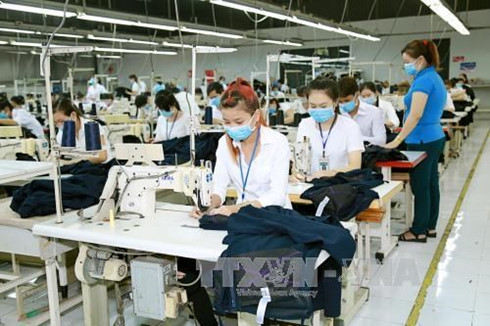
Accordingly, the majority of European enterprises acknowledged that the country’s macroeconomic stability will likely continue, with 56.3% of respondents forecasting “stabilisation and improvement” and just 9.4% of respondents expecting deterioration.
The chamber revealed that about 49% of the respondents expect the number of orders or revenue to increase slightly in the next quarter. 15.6% of them were even more optimistic. Therefore, when they were asked about investment and personnel development plans, responses were also positive, consistent with the expected business orders.
The trend is considered as a good sign for the implementation of the European Union-Vietnam free trade agreement (EUVFTA), that is expected to boost business and investment activities by foreign enterprises in Vietnam.
Statistics from the Ministry of Industry and Trade (MoIT) showed that two-way trade between Vietnam and the EU reached US$21.2 billion in the first seven months of this year, up 9.05% compared the same period last year. Of this figure, Vietnam shipped US$16.2 billion worth of goods to the EU, a year on year increase of 8.68% while importing over US$4.97 billion worth of goods, up 10.28% against the same period in 2015.
Tran Ngoc Quan, deputy head of the EU Market Department under the MoIT said in the country’s export strategy to 2020, with a vision to 2030, the EU is considered one of the key trade and economic development partners, but in order to make the most of the preferential treatment offered from the EUVFTA, the local business community should take the initiative on all spheres, including market orientation, partnerships, manufacturing renovation and business culture.